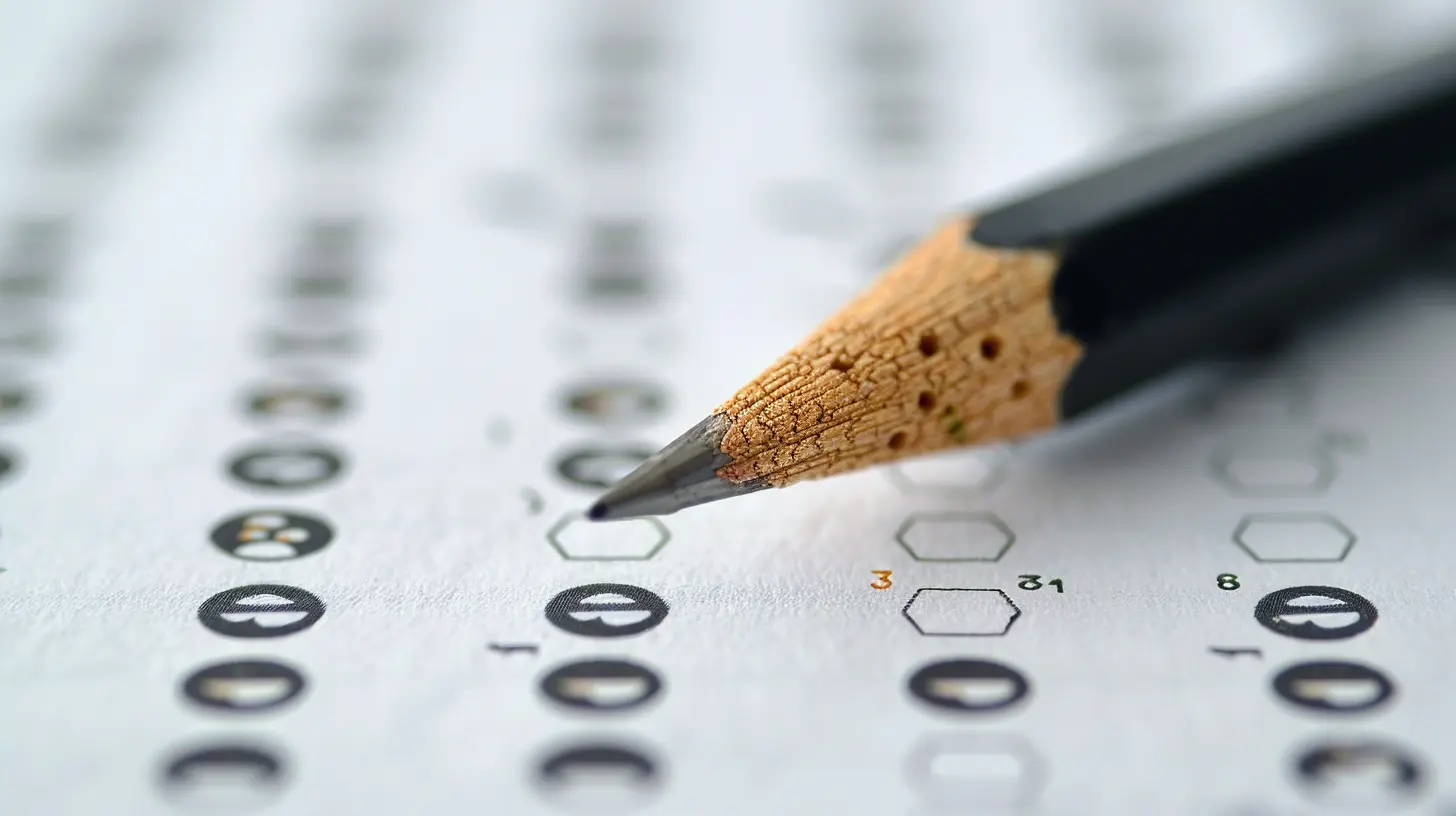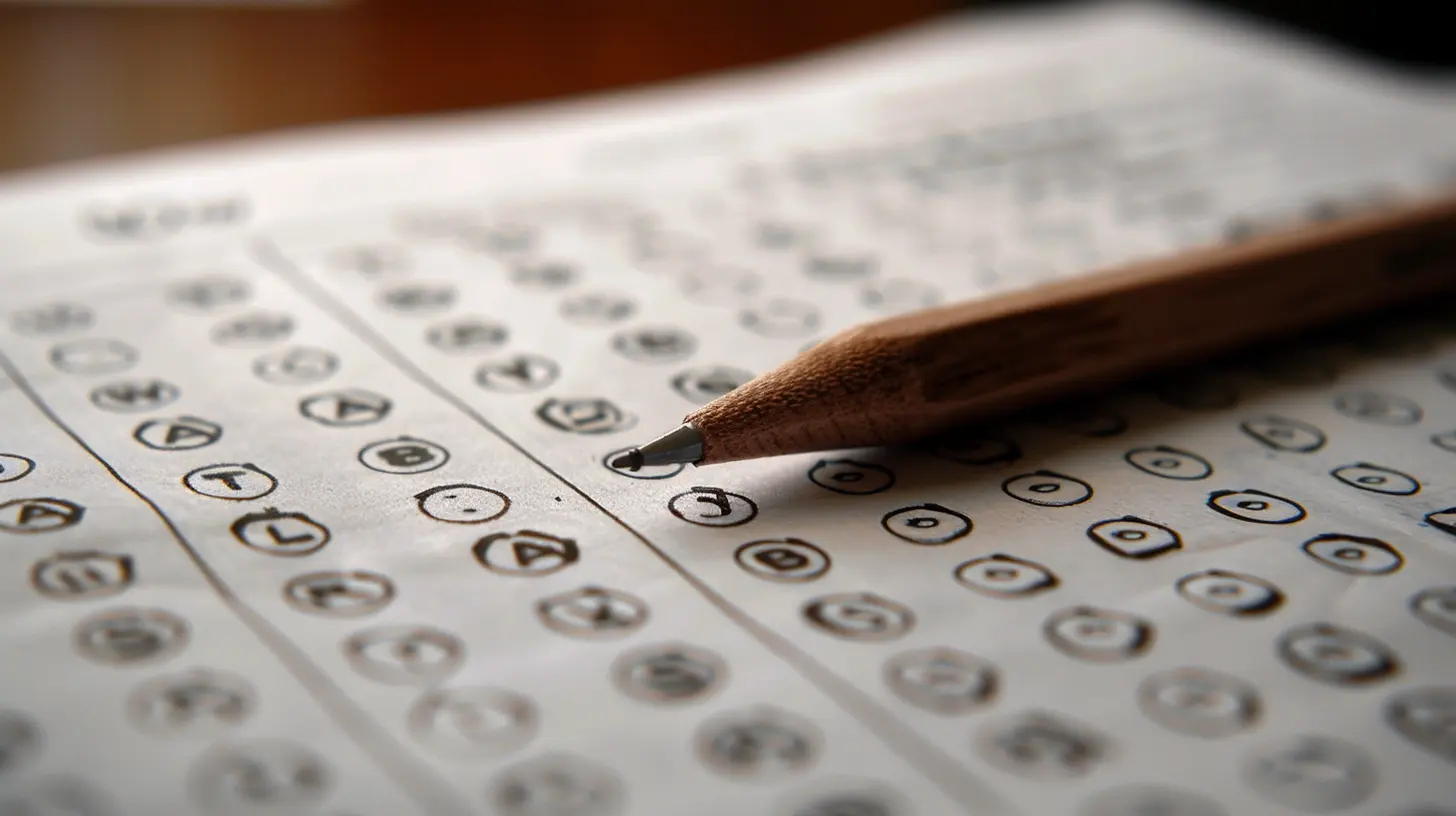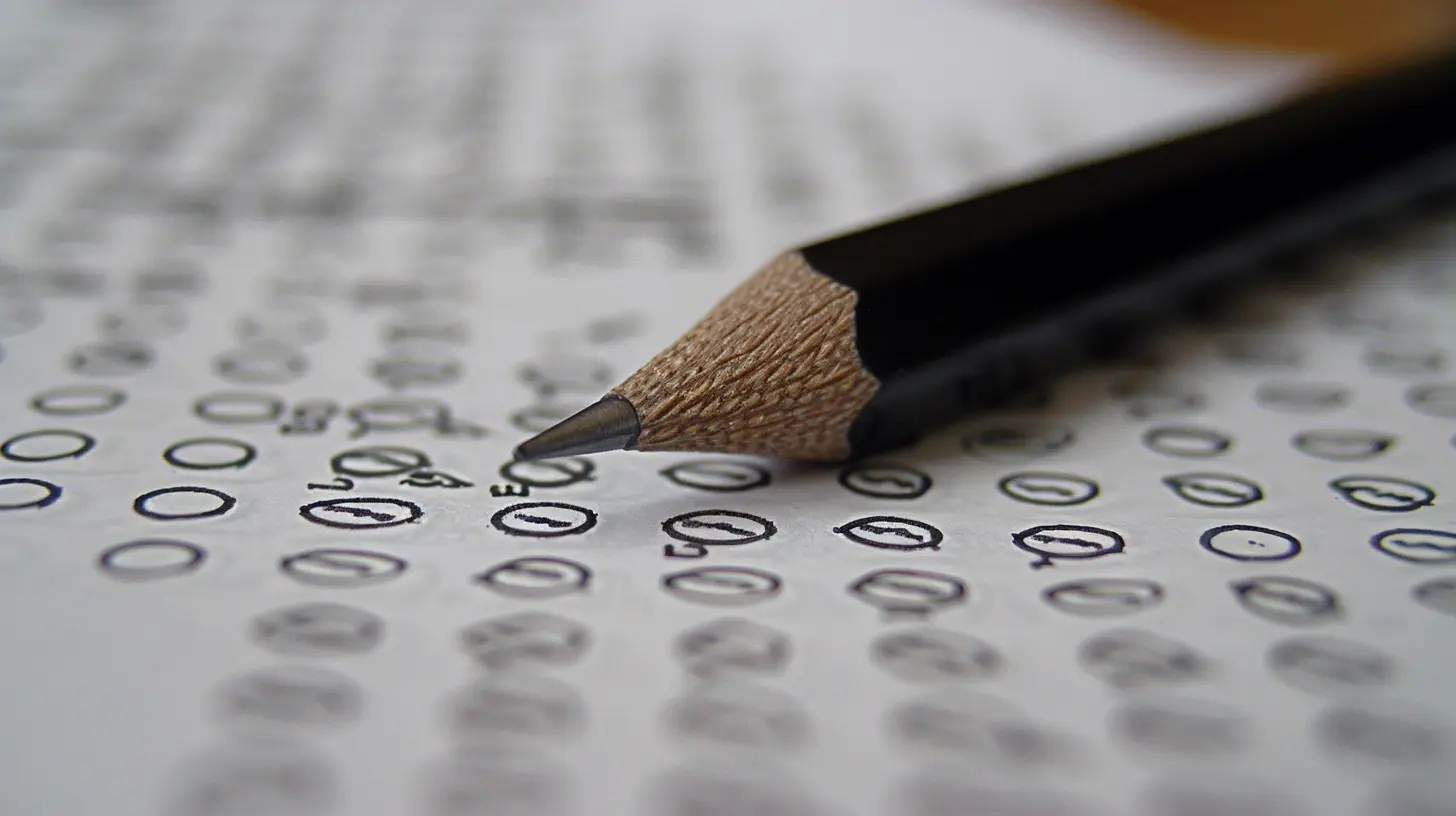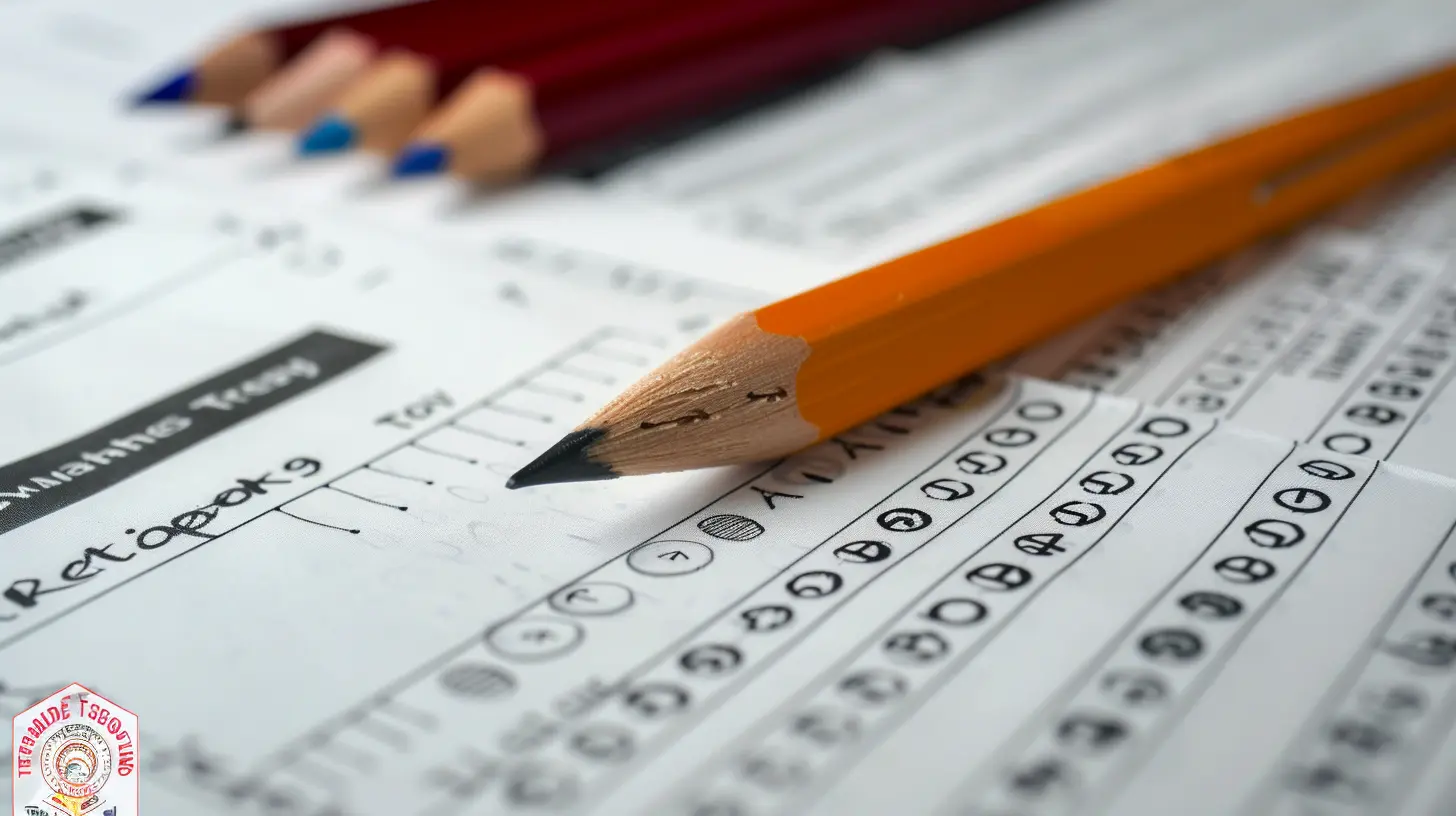What to Expect on Test Day: A Guide for First-Time Test-Takers
21 May 2025
Test day is finally here! You've spent weeks (or months) preparing, reviewing notes, taking practice tests, and maybe even pulling a few late-night study sessions. But now, as the big day approaches, you might be feeling a mix of excitement and nervousness.
What happens on test day? What should you bring? How can you stay calm and focused? If you're a first-time test-taker, these questions can make your nerves spike. But don’t worry—I’ve got you covered. This guide will walk you through exactly what to expect and how to be fully prepared so you can walk into that testing room with confidence. 
The Night Before the Test
The night before test day is just as important as the test itself. It sets the tone for how you'll feel in the morning, so make sure to get everything in order.Get Your Materials Ready
Nothing is worse than scrambling around at the last minute trying to find your ID or a working pen. To avoid any unnecessary stress, pack your test essentials the night before. Here's a checklist to help:- Photo ID (Some tests require government-issued ID)
- Admission Ticket (If applicable)
- Pencils & Erasers (Preferably No. 2 for scantron tests)
- Approved Calculator (If allowed)
- Water Bottle & Snack (If breaks are allowed)
- Comfortable Clothes (Dress in layers in case the room is too hot or cold)
- Watch (If digital timers aren’t provided)
Get a Good Night’s Sleep
Pulling an all-nighter before a big test? Bad idea. Your brain needs rest to function at its best. Aim for at least 7-9 hours of sleep so you wake up feeling refreshed and alert.Eat a Balanced Dinner
Fuel your body with nutritious foods to keep your energy up the next day. Avoid greasy or heavy foods that could make you feel sluggish. Think lean proteins, whole grains, and plenty of water.
The Morning of the Test
Wake Up Early & Eat a Nutritious Breakfast
The last thing you want is to feel rushed in the morning. Set your alarm early so you have enough time to eat, get dressed, and mentally prepare yourself.A good breakfast can make a big difference in your mental sharpness. Go for:
- Protein-rich foods (Eggs, yogurt, or peanut butter)
- Whole grains (Oatmeal, whole-grain toast)
- Fruits (Bananas, berries, or apples)
Avoid excessive caffeine if you're prone to test anxiety—it can make you feel jittery.
Double-Check Your Materials
Before heading out the door, take a moment to ensure you have everything you need. It's always a good idea to do one final check.
Arriving at the Test Center
Get There Early
Plan to arrive at least 30 minutes before the test starts. This gives you plenty of time to find your seat, settle in, and take a few deep breaths before the exam begins.Follow Check-In Procedures
Depending on the test, you may need to sign in, show an ID, or go through security checks. Be patient and follow the instructions given by the proctors.Find Your Seat & Get Comfortable
Once inside, find your assigned seat and take a moment to get comfortable. Adjust your chair, organize your supplies, and take a few deep breaths to calm any nerves.
During the Test
Read Instructions Carefully
Before jumping into the questions, take a moment to carefully read all the instructions. Misunderstanding simple directions can cost you valuable points.Manage Your Time Wisely
Most tests are timed, so it's crucial to pace yourself. Keep an eye on the clock and allocate time accordingly:- Easy questions first: Don’t get stuck on one tough question. Move on and come back to it later.
- Use process of elimination: If you're unsure of an answer, eliminate the obvious wrong choices.
- Skip and return: Don’t let one question hold you up—mark it and revisit it later if time allows.
Stay Calm & Focused
If you start feeling overwhelmed, take a deep breath and refocus. A little anxiety is normal, but don’t let it take control. If your mind blanks on a question, move on and return to it later.Use Breaks Wisely
If your test includes a break, use it to stretch, grab a snack, and clear your mind. Avoid discussing answers with other test-takers—it might only make you second-guess yourself.After the Test
Review Your Work, If Allowed
If you have extra time at the end, go back and review your answers. Look for careless mistakes or missed questions.Submit Your Test & Breathe
Once you hand in your test, let it go. Overanalyzing your answers won’t change anything. Instead, take a deep breath and congratulate yourself for making it through!Reflect on the Experience
When the test is over, take a moment to reflect. What went well? What could you improve next time? Use it as a learning experience for future exams.Reward Yourself
You just completed a big milestone—so celebrate! Whether it’s treating yourself to a nice meal, watching your favorite show, or just relaxing, give yourself a well-deserved break.Final Tips for First-Time Test-Takers
1. Know the Test Format: Familiarize yourself with the exam structure ahead of time to avoid surprises.2. Practice Under Test Conditions: Simulate test-day conditions by taking timed practice exams in a quiet space.
3. Stay Positive: Your mindset matters! Walk in with confidence and trust in your preparation.
4. Avoid Last-Minute Cramming: It can cause unnecessary stress. Trust what you’ve already studied.
5. Hydrate & Stretch: Staying hydrated and doing quick stretches can help keep your energy levels up.
Conclusion
Your first test day might feel scary, but with the right preparation, you can walk in feeling confident and ready to tackle it. Follow these tips, manage your time wisely, and most importantly—believe in yourself. Tests are just a snapshot of what you know, and no matter how it goes, you'll learn something valuable for next time.Good luck—you’ve got this!
all images in this post were generated using AI tools
Category:
Standardized TestingAuthor:

Eva Barker
Discussion
rate this article
3 comments
Anabella Hayes
Embrace the excitement of your test day! Remember, preparation breeds confidence. Trust in your efforts, take a deep breath, and believe in your success!
June 8, 2025 at 11:46 AM

Eva Barker
Thank you for the encouraging words! Confidence and preparation truly make all the difference on test day.
Nymira Blair
This article is a fantastic resource for first-time test-takers! I appreciate the insights on preparation and mindset. I'm curious about any additional tips for managing anxiety on test day—what strategies have others found helpful? Looking forward to learning more!
May 23, 2025 at 3:01 AM

Eva Barker
Thank you for your kind words! For managing anxiety on test day, many find deep breathing exercises, positive visualization, and arriving early to the test center helpful. Staying positive and being well-prepared can also significantly reduce stress. Good luck!
Maren McNair
Thank you for this informative guide! As a first-time test-taker, I found your tips on preparation and managing test-day anxiety incredibly helpful. I appreciate the clarity and support you've provided for newcomers like me!
May 22, 2025 at 5:00 AM

Eva Barker
Thank you for your kind words! I'm glad you found the guide helpful. Best of luck on your test day!



